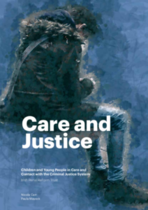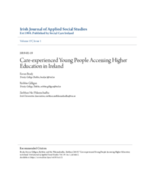To Navigate the Normative and the Not-Normative Family Therapists Negotiating Their Professional Identities with Parents Whose Children are Placed in Public Care
This article examines the professional identities of family therapists employed by Family Counselling Services (FCS) in Norway and their experiences providing therapeutic services to parents whose children are placed in public care.


